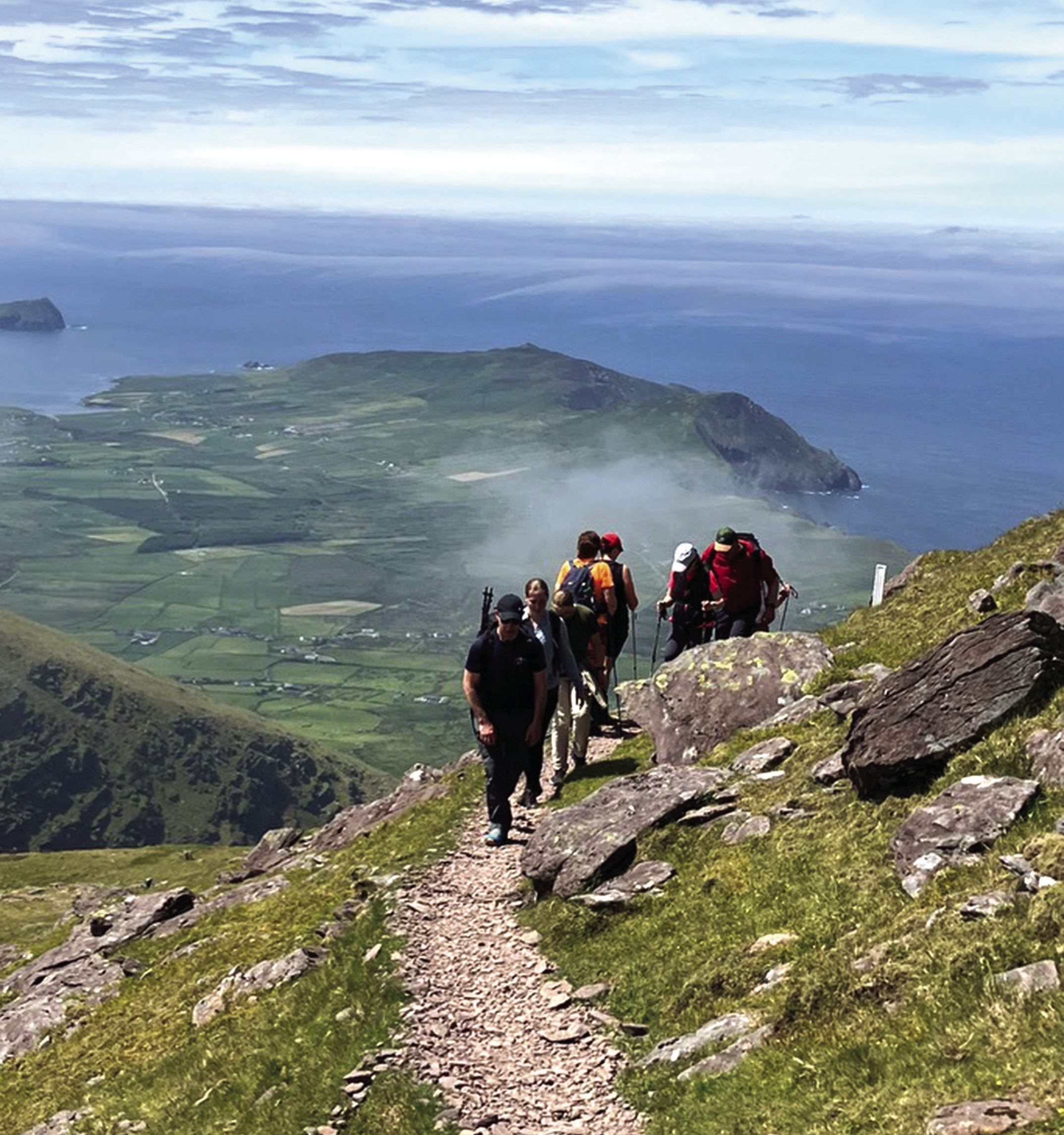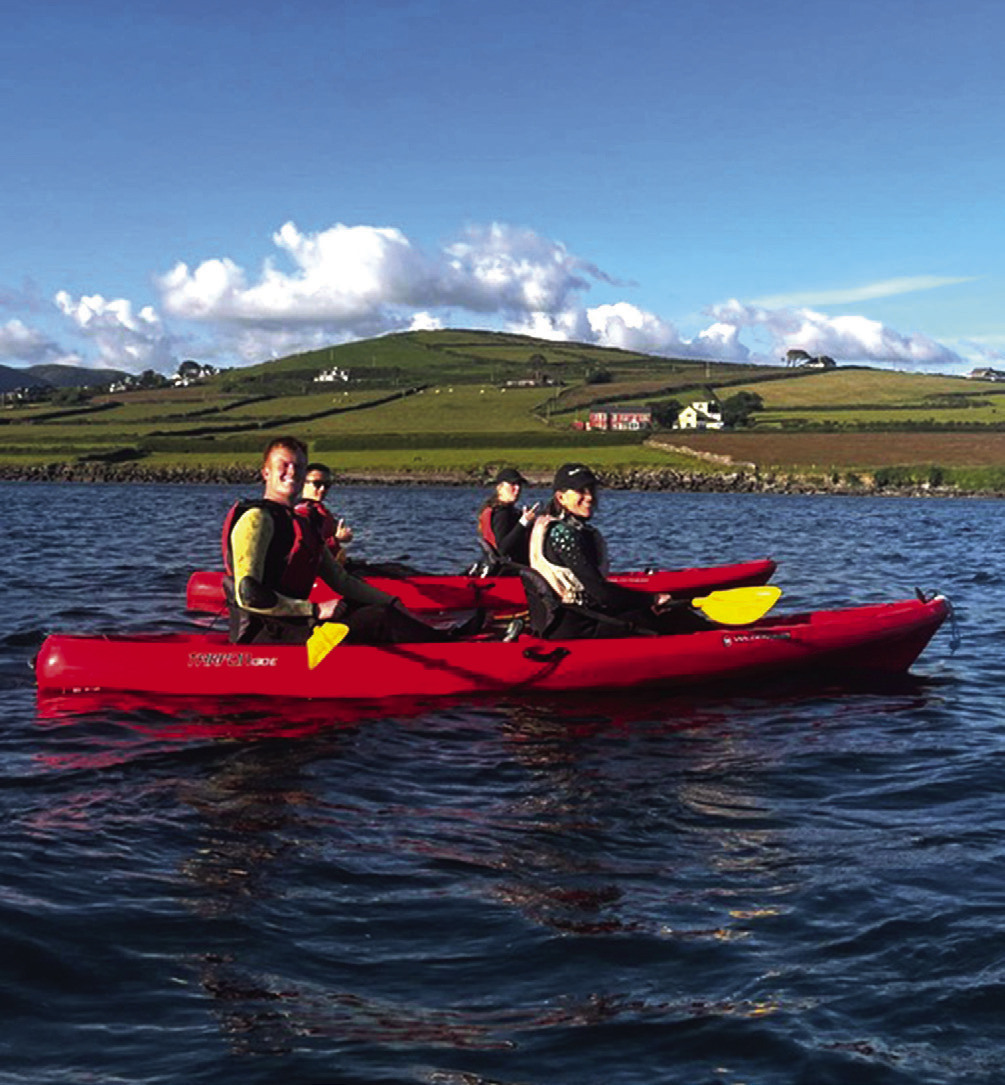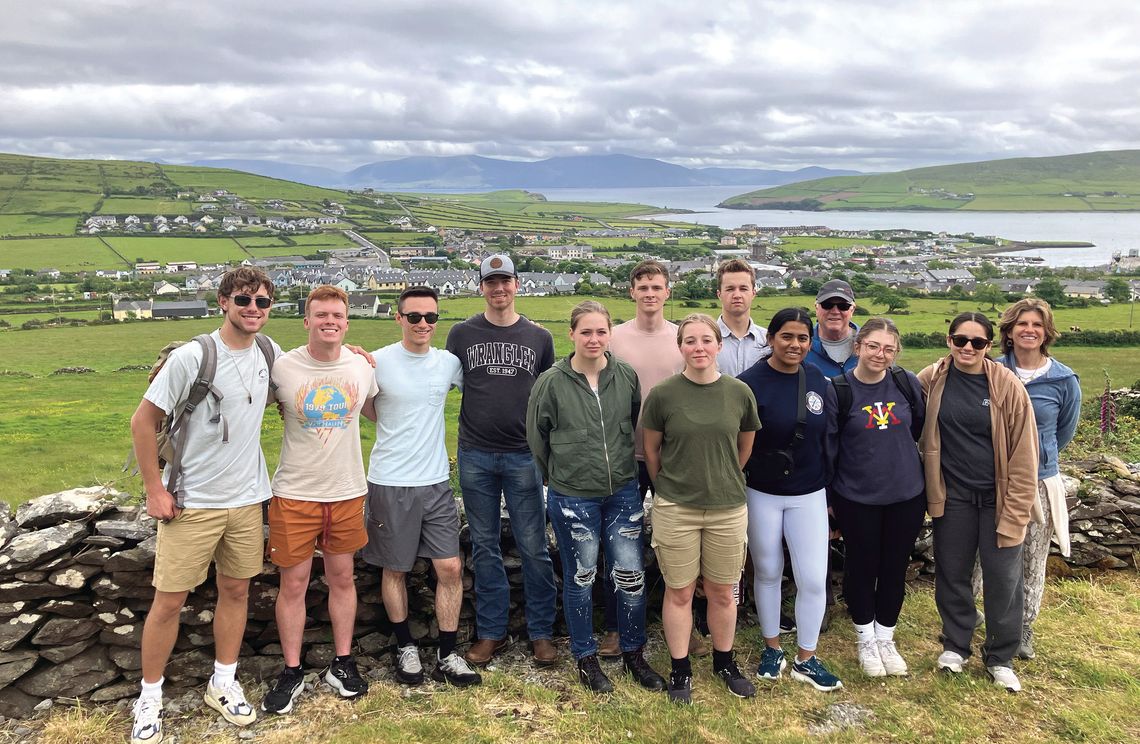Summer Program Takes 11 Cadets To Dingle
Editor’s note: The following story was written by Marianne House, media relations specialist for VMI Communications & Marketing.
“Céad míle fáilte” is Gaelic for “a hundred thousand welcomes,” and captures the spirit of the warm hospitality a group of 11 Virginia Military Institute cadets and their two professors recently experienced while on an educational journey in Dingle, Ireland.
Through the Office of Global Education, Col. Wade Bell, professor and head of the Department of Biology, developed a three-week summer program for cadets of all majors to travel to Ireland and take two threecredit hour courses.
This year’s courses were “Epidemics in Society,” taught by Bell, and “Voices from Ireland- Artistic Responses to Social and Political Issues,” taught by Lt. Col. Stephanie Hodde, associate professor in the Department of English, Rhetoric and Humanistic Studies.
Bell framed his biology course around Ireland’s Great Famine from 1845 to 1852, so Hodde chose to frame her class around the same approximate era, known as the Irish literary renaissance.
“I started with poets William Butler Yeats and Patrick Kavanagh, and taught all the way to contemporary playwrights, J. M. Synge and Brian Friel,” she said. “Our particular focus was the peasant population and their heritage, history, their many struggles, their colonial role with Britain, their resilience, and their attachment to the land. The Gaelic language, which was a big part of that renaissance, allowed the Irish to resist Britain’s insistence that English be the official language, and Gaelic continues to be a primary language in that area of Ireland.
“There are two particular sets of islands off the Southeastern coast that herald writers who preserve the Gaelic language and culture; the Blaskets and the Aran Islands. We visited those islands and studied the writers that came from them,” she said.
While in Dingle, the group stayed at the Díseart, formerly a convent of the Presentation Sisters, which hosts students from several colleges who are interested in studying some aspect of the Celtic culture during the summer.
Hodde required the cadets to keep a reflective daily journal during the program.
“A big part of the cultural experience was for the cadets to immerse themselves in the daily life of Irish people, and to record their thoughts and encounters with other voices,” said Hodde. “Dingle is an incredibly friendly community and relatively small. The cadets enjoyed conversing with the locals about what it means to be an American, and shared common life experiences.”
Thomas Dines ’27, an English major, stated that the trip far exceeded his expectations.
“The unique balance of realworld experience and classroom discussion was more conducive to learning than standard education models,” he said. “The interactions I had with the local people made this trip much more immersive and meaningful than it would have been otherwise. Frequently going out and visiting new locations helped me better understand the Irish culture and the significance of studying it within a historical context.”
McKenna Shrout ’25, an international studies major, agreed with Dines.
“Studying abroad in Ireland has been inspiring to me and has given me the opportunity to connect with diverse cultures,” she said. “Being an ‘easier’ country to visit, there was still enough of a difference in culture where we could be immersed in the daily lives of the natives. Touring the Blasket Islands and Inis Oírr was delightful, and I could have explored all day if given the chance. I enjoyed seeing the breathtaking views such as the Cliffs of Moher and the Burren — both are sights that I would have never seen if I had not participated in this program.”
Hodde stated that though she had traveled to Ireland on a personal vacation before, this was her first experience teaching abroad with VMI.
“The English department has a program in England, but this has just been a really nice way for us to collaborate with other departments,” she said. “For me, being able to experience Ireland with the cadets on a daily basis was my favorite part of the trip. Whether we were hiking Mt. Brandon, the highest point on the peninsula, or visiting a local famine graveyard, or listening to a worldrenowned accordion player, we learned together the unique and rich cultural traditions. It’s such a magical place!”

CADETS ascend Mt. Brandon, towering above the Atlantic coastline. (photo courtesy of Lt. Col. Stephanie Hodde)

CADETS kayak in Dingle Bay during their trip to Ireland. (photo courtesy of Lt. Col. Stephanie Hodde)
.jpg)



